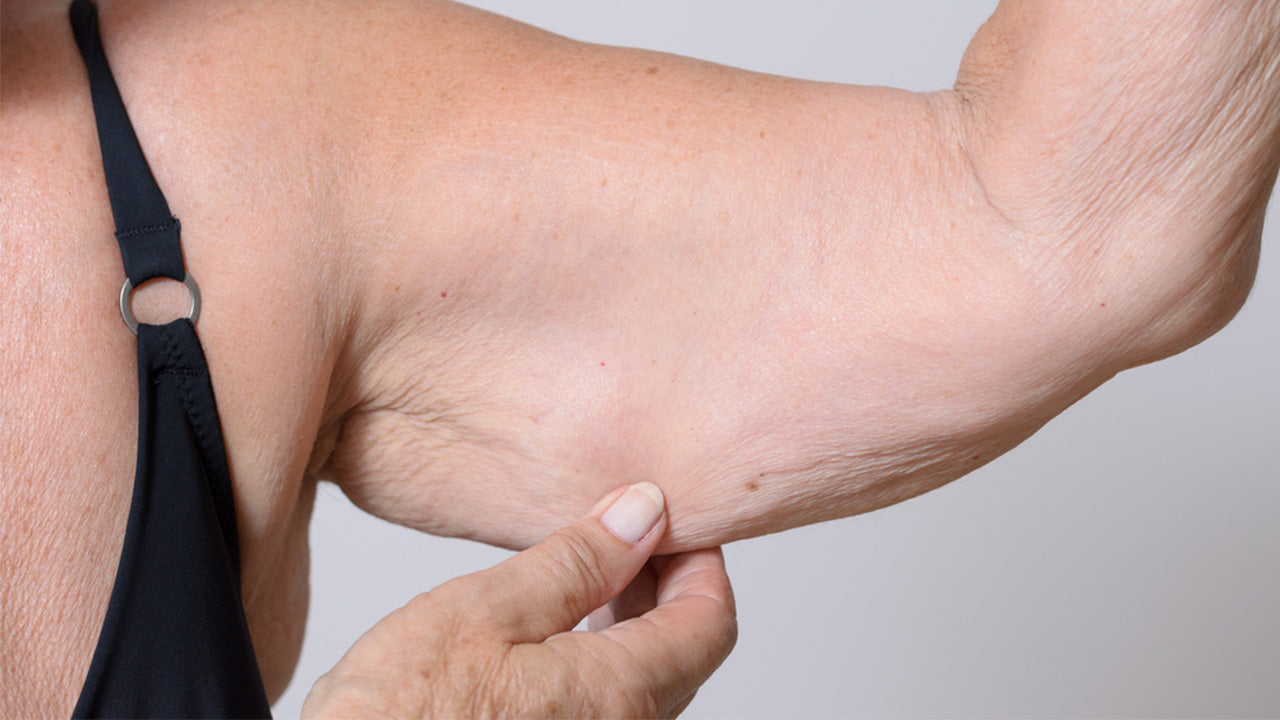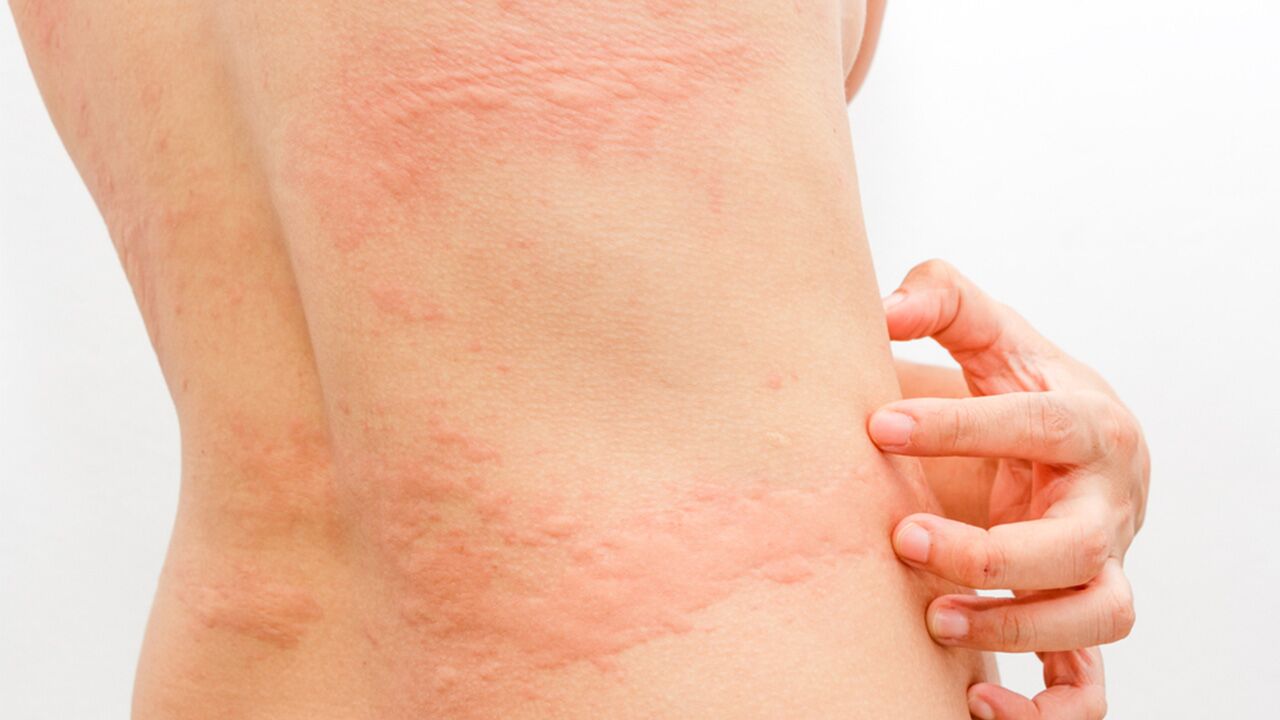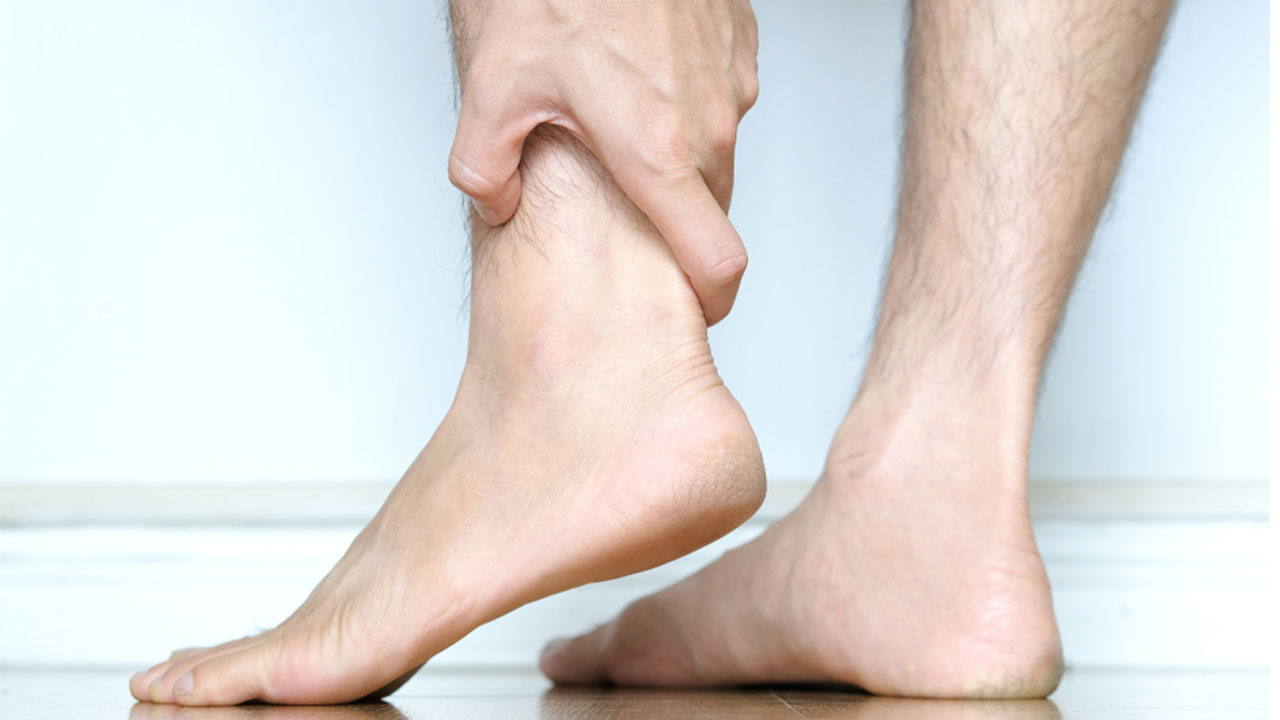Understanding Autophagy: Loose Skin, Chronic Disease and Cancer—Some Scientists Say It Could Be the Key to Treating and Preventing All of These
 By: by Amino Science
By: by Amino Science

Autophagy (pronounced ah-TAH-fuh-gee), a medical term, describes a regenerative cellular process that decreases your risk of developing a multitude of serious diseases, extends your lifespan, and improves your overall health and well-being. In some circles, there's particularly intense interest in the impact of autophagy on loose skin following weight loss, a frustrating side effect that can require surgery to address.
Read on to learn about the science behind autophagy as well as how it can help those on weight-loss journeys.
What Is Autophagy?
In simple terms, the concept of autophagy can be defined as follows: without external nutrients, the body begins to consume itself. The term comes from the Greek words "auto" meaning self and "phage" meaning to eat.
While this may sound like the premise for a horror movie, it can be incredibly beneficial. During the process of autophagy, specialized membranes seek out cells that are dead, damaged, or diseased and use their component parts for energy or to make new cells.
"Think of it as our body's innate recycling program," said Dr. Colin Champ, assistant professor at the University of Pittsburgh Medical Center, in an interview. Other experts have summed it up as "cellular housekeeping" or "cellular quality control."
Though Belgian biochemist Christian de Duve originated the term "autophagy" in 1963, much of what we now know about this vital process was not discovered until well into the 2000s. In fact, pioneering Japanese biologist Yoshinori Ohsumi won a Nobel Prize for his investigations into the mechanisms of autophagy in 2016. Scientists working in the field, however, caution that what we currently don't know about autophagy would fill far more books than what we do.
7 Proven Benefits of Autophagy
Autophagy plays a fundamental and essential role in overall cellular function by recycling disused or dysfunctional components that, if left in place, can become problematic. By doing so, autophagy can prevent the development of several types of diseases. Here are 7 proven ways autophagy benefits your health.
1. Decrease Systemic Inflammation
A 2017 review published in Clinical and Translational Medicine states that "increasing evidence" demonstrates autophagy can help to prevent the development of inflammatory diseases.
"Autophagy plays critical roles in inflammation through influencing the development, homeostasis and survival of inflammatory cells, including macrophages, neutrophils and lymphocytes; effecting the transcription, processing and secretion of a number of cytokines, as well as being regulated by cytokines," the authors state. Essentially, this means that autophagy helps to ensure that all the cells regulating your body's inflammatory processes are working properly.
The authors go on to say that studies suggest autophagy's positive influence on inflammatory cells offers promise as a therapeutic intervention for diseases linked to inflammation, including:
- Crohn's disease
- Cystic fibrosis
- Pulmonary hypertension
- Obstructive pulmonary disease
2. Treat Neurodegenerative Diseases
Findings published in Frontiers in Neuroscience, a leading journal in its field, point to autophagy as a way to slow the progression of neurodegenerative diseases.
As we've established, autophagy repurposes cellular components, including misfolded proteins. The accumulation of misfolded proteins is believed to cause symptoms of many neurodegenerative diseases to worsen. So, by preventing that, autophagy can mitigate the severity of those diseases.
3. Safeguard Mental Health
Some research has shown that when autophagy does not occur with sufficient frequency, your mental health can be negatively impacted.
A study published in Molecular Psychiatry, a peer-reviewed journal, looked at the connection between autophagy and mental health. When they analyzed the brains of schizophrenia patients, the authors found clear reductions in post-mortem levels of proteins that control autophagy. They determined that the direct association between autophagy and the progression of schizophrenia could offer a pathway to new methods of treatment.
4. Increase Longevity
A review published in the Journal of Clinical Investigation claims that inducing autophagy can counteract cellular aging processes and enhance the metabolic activity of your cells, resulting in increased longevity.
This claim stems from experimental findings, and it's not yet clear exactly how autophagy increases anti-aging activity and extends life spans, though studies with mice have shown that to be the case.
5. Suppress Tumor Growth
It's clear that the process of autophagy is intimately linked to the development of cancer, but exactly what effect it has on tumor initiation and development remains somewhat murky.
Per a review published in the International Journal of Molecular Sciences, "Many studies have found that autophagy plays dual roles in cell survival and cell death in the context of tumor initiation and development." The authors elaborate that while autophagy has been shown to suppress tumor formation in certain instances, it also seems to contribute to cancer progression by supplying nutrients to cancer cells in others.
More research is needed to fully understand how to harness the power of autophagy to prevent cancer. In the future, however, the authors believe it could be "a potentially effective therapeutic strategy in anticancer therapy."
6. Support Maintenance of a Healthy Weight
Some of what we know about autophagy comes from research in what happens in its absence. For instance, a study done with mice and published in Cell Metabolism found that deleting an essential autophagy gene led to higher body weights, increased fat mass, and higher rates of glucose intolerance.
According to the authors, these findings indicate that an autophagy deficiency may play a role in the development of obesity.
7. Prevent Sagging Skin Post-Weight Loss
Though this benefit does not have rigorous scientific support, solid anecdotal evidence indicates that autophagy can help those who have lost weight—particularly, individuals who have lost a lot of weight—from needing skin removal surgeries. Dr. Jason Fung, a nephrologist who specializes in research into fasting, has developed a program designed to help people successfully lose weight and reverse conditions linked to weight gain, such as type 2 diabetes, polycystic ovarian syndrome (PCOS), and fatty liver.
"We've never sent a single person for skin-removal surgery," said Dr. Fung in an interview. "We have anecdotal cases where people have lost 120, 130 pounds, and they said their skin also shrank, too."
Fung believes this happens because the body harvests the protein contained in excess skin. "Remember, during fasting, you’re activating a pathway within your body that says, ‘Okay, we need to buckle down because we’re in a time of famine, so to speak, and we don’t need all that extra skin, so let’s burn it. And if you need it, we’ll build it again.’”

Is It Possible to Trigger Autophagy?
Though it has not yet been definitively proved that it's possible to trigger autophagy in humans, studies done with animals indicate that fasting and calorie restriction may be means of inducing autophagy.
A literature review published in Ageing Research Reviews in 2018 found that "the evidence overwhelmingly suggests that autophagy is induced in a wide variety of tissues and organs in response to food deprivation." In other words, there's a very high likelihood that if you fast, autophagy will occur.
Studies done with mice have historically delineated 24 hours as the marker for when autophagy sets in, but it's not clear whether the same would hold true for humans. Dr. Fung believes that autophagy most likely sets in during the later stages of an extended fast, "somewhere around 20 to 24 hours is my guess, and it probably maxes out somewhere around 32 hours, again, my best guess."
While scientists have yet to agree upon a surefire way to trigger autophagy, this process does occur naturally, though it's unclear how frequently or extensively it takes place without outside stimulus. Fasting, exercise, and other forms of physiological stress seems to cause the process to accelerate.
However, it's quite challenging to measure autophagy (technically, what would be measured would be termed autophagic flux) in humans, as it requires tracking the levels of minuscule proteins, including protein 1A and LC3.
Does Autophagy Have Any Negative Effects?
While autophagy clearly has a host of remarkable benefits, it can cause problems too. An article published in PLOS Biology termed it a "double-edged sword."
Author Andrew Thorburn of the Department of Pharmacology at the University of Colorado School of Medicine explained that "autophagy's effects may work for both the good and the bad of an organism." When it comes to conditions like treating bacterial infections, autophagy sometimes leads to improvement and sometimes causes conditions to worsen. According to Thorburn, using autophagy effectively will require a better understanding of which cells it degrades and under what circumstances.
It's important to note as well that using fasting as a method for inducing autophagy comes with its own risks. There are no universal medical recommendations at this time, but most experts agree that extended fasts—going without food for 36-, 48-, or even a full 72 hour-fast—should only be undertaken by those in good health. Extended fasting should not be done too frequently either. As a general rule, it should only be undertaken 2 or 3 times annually. Confer with a trusted doctor before embarking on a fast to make sure it's safe for you.
If you have previously engaged in unhealthy food restrictions behaviors or have been diagnosed with an eating disorder like anorexia, it's likely best to avoid fasting.
Expert Advice on Triggering Autophagy
Because autophagy is a stress response, to intentionally trigger it, you will have to endure some discomfort. "It's our ancestral and evolutionary response to dealing with feast and famine in times of stress," said Dr. Champ.
If you'd like to try triggering autophagy, one of these three methods is a good place to start.
1. Enter a State of Ketosis
If the idea of fasting feels daunting or there are reasons you should avoid it, evidence shows you can also activate autophagy by entering ketosis. By restricting your carbohydrate intake and increasing your fat intake, you can shift your body into a state in which it uses fat rather than carbs as its primary source of fuel. This is the scientific basis for the immensely popular high-fat, low-carb ketogenic diet, commonly abbreviated as the keto diet.
In order to adhere to the keto diet, you'll need to keep your carbohydrate intake at no more than 5% of your total calories, your protein intake between 20% and 30%, and your fat percentage at between 60% and 70%.
Studies have shown that entering ketosis can bring about significant fat loss while maintaining muscle mass. Other proven medical uses for the keto diet include improving the treatment of epilepsy and other brain conditions (in fact, it was developed to treat epilepsy in children), lowering your risk of diabetes, and assisting your body in defeating cancerous tumors.
According to Champ, "Ketosis is like an autophagy hack. You get a lot of the same metabolic changes and benefits of fasting without actually fasting.”
2. Experiment with Intermittent Fasting
Extended fasts can be grueling, but that may not be necessary in order to spur autophagy.
A Brazilian research team published a research review indicating that intermittent fasting can help increase autophagy, which makes cancer treatments more effective and reduces side effects. They note, however: "Additional studies are required to better understand the molecular mechanisms evoked by fasting, aiming to identify the context in which fasting may be beneficial as an adjunct to cancer treatment."
In the meantime, it certainly seems worthwhile to give intermittent fasting a try, if for no other reason than the wealth of benefits they mention that have been associated with intermittent fasting, such as an extended lifespan and a lower risk of diseases including:
- Diabetes
- Heart disease
- Neurodegenerative conditions
As with extended fasting, there are limitations on who should try intermittent fasting. It's typically not advisable for children, pregnant women, or individuals with diabetes or other blood sugar issues to follow this fasting protocol.
3. Engage in Regular Exercise
As you may know, exercising creates microscopic tears in your muscles. When your body repairs those tears, that process leads to bigger, stronger muscles. It appears that exercise also increases the rate at which your body carries out autophagy.
A study published in Nature, an international journal of science, found: "Acute exercise induces autophagy in skeletal and cardiac muscle of fed mice." The authors discovered that after 30 minutes of running on a treadmill, the rate at which mice recycled their own cells via autophagy increased significantly and continued to do so until the 80-minute marker at which point rates leveled out.
Scientists have not yet pinpointed the threshold require for humans to kickstart autophagy. Dr. Daniel Kilonsky, a cellular biologist specializing in autophagy, says that at the moment, it's proving quite difficult to answer that question. However, he reminds us that exercise, like intermittent fasting, has many other benefits.

Additional Advice on Naturally Addressing Loose Skin
If your primary interest in autophagy has to do with its potential role in addressing loose skin following weight loss, you may want to incorporate these other natural methods for resolving loose skin without plastic surgery.
A key aspect of doing so is improving skin elasticity. Without proper elasticity, your skin cannot adapt to physical changes such as weight loss. To maintain or enhance skin elasticity, you'll need to sustain an adequate supply of collagen.
All the collagen in your body begins as procollagen. To make procollagen, your body uses two amino acids: glycine and proline. Certain nutrients have been shown to increase the rate at which your body produces those amino acids, such as vitamin C, copper, selenium, and zinc.
Citrus fruits, strawberries, bell peppers, and raw liver all contain high concentrations of vitamin C. Organ meats are generally high in copper, as are cashews, sesame seeds, lentils, and cocoa powder. You can get plenty of selenium from seafood (salmon in particular) and Brazil nuts, while oysters and red meat are rich in zinc.
Consuming foods high in glycine and proline themselves also boosts procollagen production. Good sources of glycine include gelatin as well as pork and chicken skin, while egg whites, dairy products, wheat germ, mushrooms, asparagus, and cabbage provide lots of proline.
Because your body needs a balanced supply of all the amino acids in order to effectively utilize them, you'll also want to eat foods with overall high levels of amino acids, like:
- Red meat
- Poultry
- Seafood
- Legumes
- Tofu
It's also a smart move to supplement with a full formula of all the essential amino acids.
Interestingly, eating foods high in collagen, such as bone broth, is not necessarily the best way to raise levels in the body. That's because when you consume protein, your body breaks it down into its component amino acids.


Up to 25% off Amino
Shop NowTAGS: anti-aging conditions natural cures
Join the Community
Comments (0)
Most Craveable Recipes




 833-264-6620
833-264-6620



















